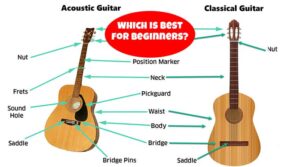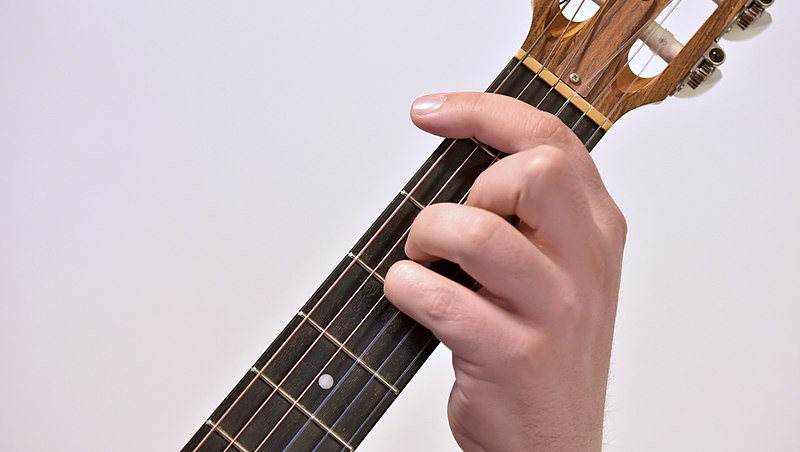The ease of learning the electric guitar or acoustic guitar can vary depending on individual preferences, learning styles, and musical goals. To know guitar for beginners – electric or acoustic, read this blog in full.
Factors Help Choosing Guitars For Beginners
Here are some factors to consider:
- Physical Factors: Electric guitars typically have thinner necks and lighter string gauges, making them slightly easier to handle and press down on the frets. This can be advantageous for beginners, as it requires less finger strength and may result in less finger soreness initially. Acoustic guitars, on the other hand, tend to have thicker necks and heavier strings, which can be more challenging for some beginners.
-

Choose the best guitar for beginners
So, undoubtedly, electric guitar is better option for beginners. You should choose the best electric guitar for beginners wisely when you are new to play this instrument.
- Playing Techniques: Electric guitars offer a wider range of playing techniques and effects due to the ability to modify the sound using amplifiers and effects pedals. This can be both exciting and overwhelming for beginners who are just starting to learn basic chords and strumming patterns. Acoustic guitars, being more focused on producing natural acoustic sound, may have a simpler approach in terms of playing techniques.
- Musical Genres and Styles: The choice between electric and acoustic guitar can also depend on the style of music you want to play. If you’re interested in rock, blues, metal, or genres that heavily rely on amplified sounds and effects, the electric guitar may be more appealing. Electric guitars are always best option for beginners Acoustic guitars are well-suited for players who desire to play folk, country songs, singer-songwriter, and other acoustic-oriented styles.
- Practice Considerations: Electric guitars for beginners are often played with the assistance of an amplifier, allowing you to control the volume and tone. This can make practice sessions more enjoyable and immersive. Acoustic guitars, on the other hand, do not require amplification and can be played anywhere without the need for additional equipment.
- Personal Preference: Ultimately, the ease of learning depends on your personal preference and motivation. If you are more drawn to the sound and style of electric guitar music, you may find it easier to stay motivated and engaged in the learning process. Conversely, if you have a strong connection to acoustic guitar music and enjoy the simplicity and natural sound, you may find it easier to learn acoustic guitar.
It is very important to keep in mind that learning any musical instrument requires time, patience, and consistent practice. Both electric and acoustic guitars have their unique characteristics and learning techniques. The key is to choose the right instrument that vibrates with your musical pursuits and goals, as that will make the learning process more enjoyable and fulfilling.
Last but not least,
If you are looking for guitars for beginners, certainly you should go with electric guitar over an acoustic guitar.
Hope you enjoy reading!





